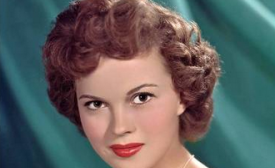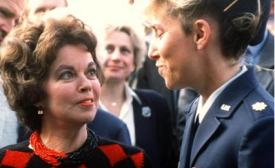Czechoslovakia

Shirley Temple Black, an American cultural icon of the Great Depression Era, and U.S. Ambassador to both Ghana (1974-76) and Czechoslovakia (1989-92), passed away on Monday, February 10th. CPD reached out to a few public diplomacy scholars and practitioners for their take on her global public diplomacy impact.

I’m a Shirley Temple fan. Not a big fan of her movies; they seemed more suited for my sister. I’m a fan of her diplomacy in Czechoslovakia. I was a Newsweek reporter living in Prague between the 1989 “Velvet Revolution” and 1991 when I saw up close how Ambassador Shirley Temple Black worked it. That’s how I became a fan. (Disclosure: I like ambassadors, my wife was U.S. ambassador to Hungary 2010-13.)
America has had many notable diplomats dealing with Czechoslovakia, or the more modern Czech Republic, a country split from Slovakia in 1993 following a “Velvet Divorce.”
Shirley Temple Black’s career speaks to the inherent power of cultural diplomacy to move people in positive ways. As perhaps the biggest child movie star in history, she made magic with her dance and voice—and her talent echoed around the world as did her powerful films which made America look vibrant and culturally robust. In many ways she made America into the great “fairy tale” it could be—a nation beckoning others with its openness and warmth.

Her personal and informal style worked well with the new government, made up of formerly imprisoned, hard laboring and human rights Charter 77-signing artists, musicians, actors and a playwright president named Vaclav Havel.







